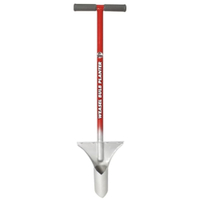These natural deterrents can help keep squirrels away from your bulbs
Learn how to stop squirrels digging up bulbs and ruining your springtime displays
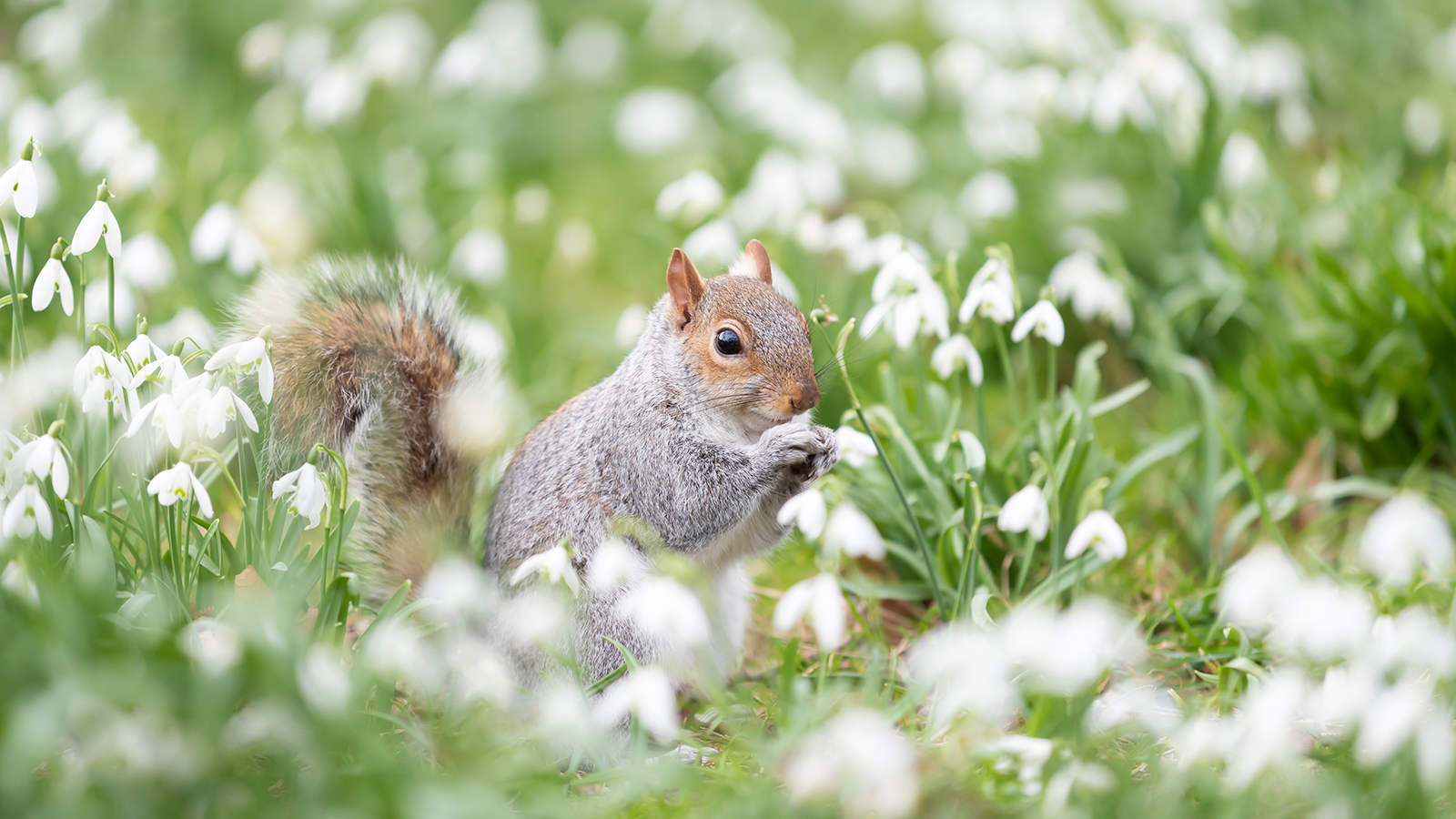

Learning how to stop squirrels digging up bulbs can feel like a thankless and never ending task.
Some of these tips are for you to bear in mind when the time comes to plant bulbs. But if they're already in the ground, then you can look at some of the natural deterrents which will put squirrels off once they've been planted.
'Before I really started making a conscious effort to keep squirrels away from my bulbs, I'd find, to my dismay, that the number of bulbs which popped up were far less than the amount I'd planted the previous season,' says Teresa Conway deputy gardens editor at Homes & Gardens.
Rest assured, knowing how to get rid of squirrels in your backyard isn't your only option if you want to protect your bulbs.
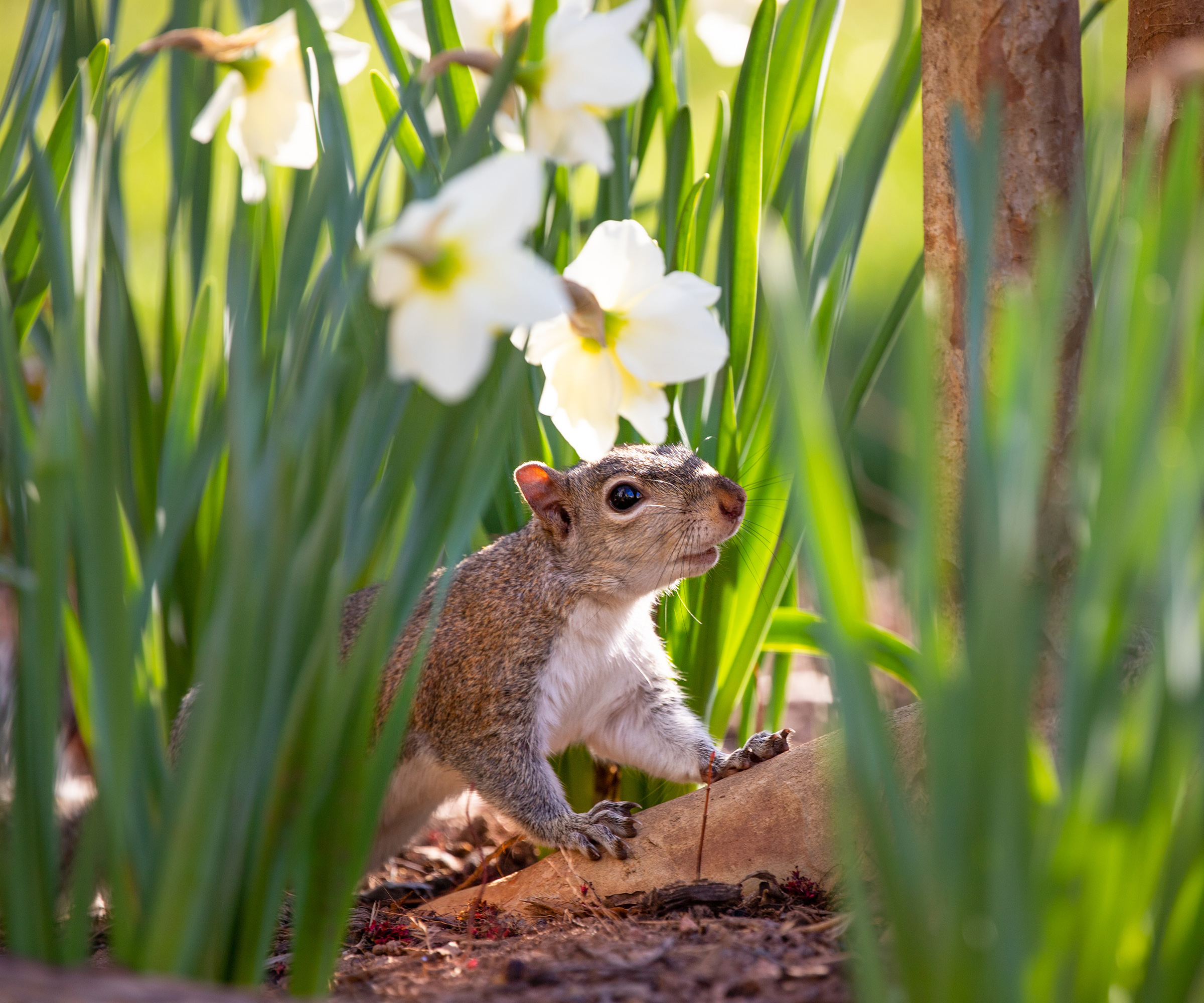
Expert tips on how to stop squirrels digging up bulbs
If you've gone to the effort of learning how to plant bulbs, you'll want to use some of these simple methods to stop squirrels digging them up.

Teresa has been creating and editing a variety of rich garden content for over six years, across many brands including Homes & Gardens, Country Homes & Interiors and Living Etc. She was Deputy Editor on Gardeningetc.com as well as a judge on the panel at the prestigious Society of Garden Designers awards.
1. Delay your bulb planting times
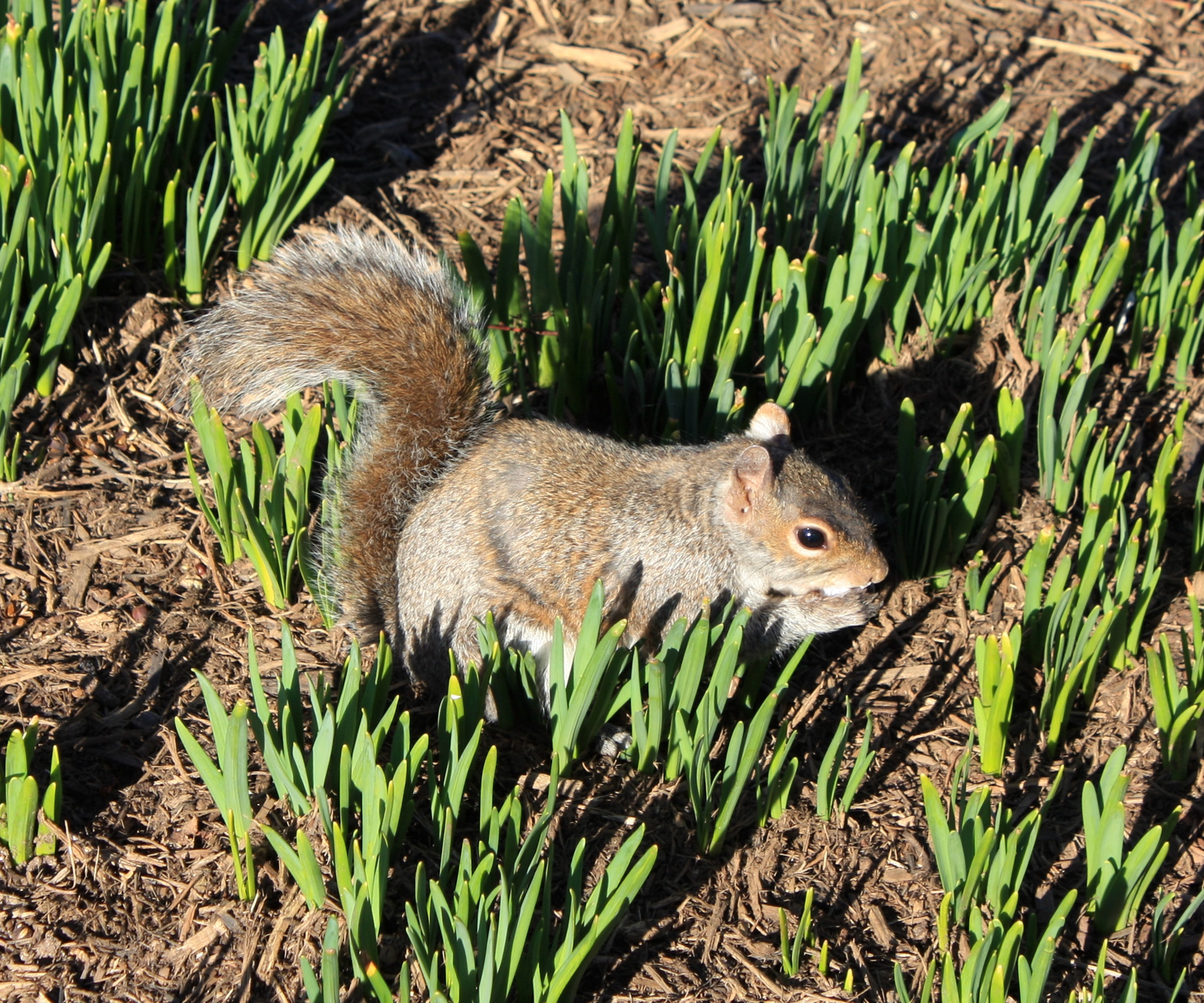
Planting bulbs later in the season can avoid the squirrel digging frenzy
Most gardeners will start planting their spring bulbs in fall, when the cooler weather is beginning, but before the ground is too cold and hard.
Unfortunately, fall is also the prime time of year when squirrels really get digging, as they're gathering for winter hibernation and might be feeding too. They only begin to quieten down by late October.
Luckily, it's possible to delay the planting time of some bulbs. If you're planting allium bulbs or other hardier summer varieties like crocosmia, these can be planted slightly later in October, and if you're planting tulip bulbs, you can wait as late as November to get them in the ground.
2. Plant your bulbs at the proper depth
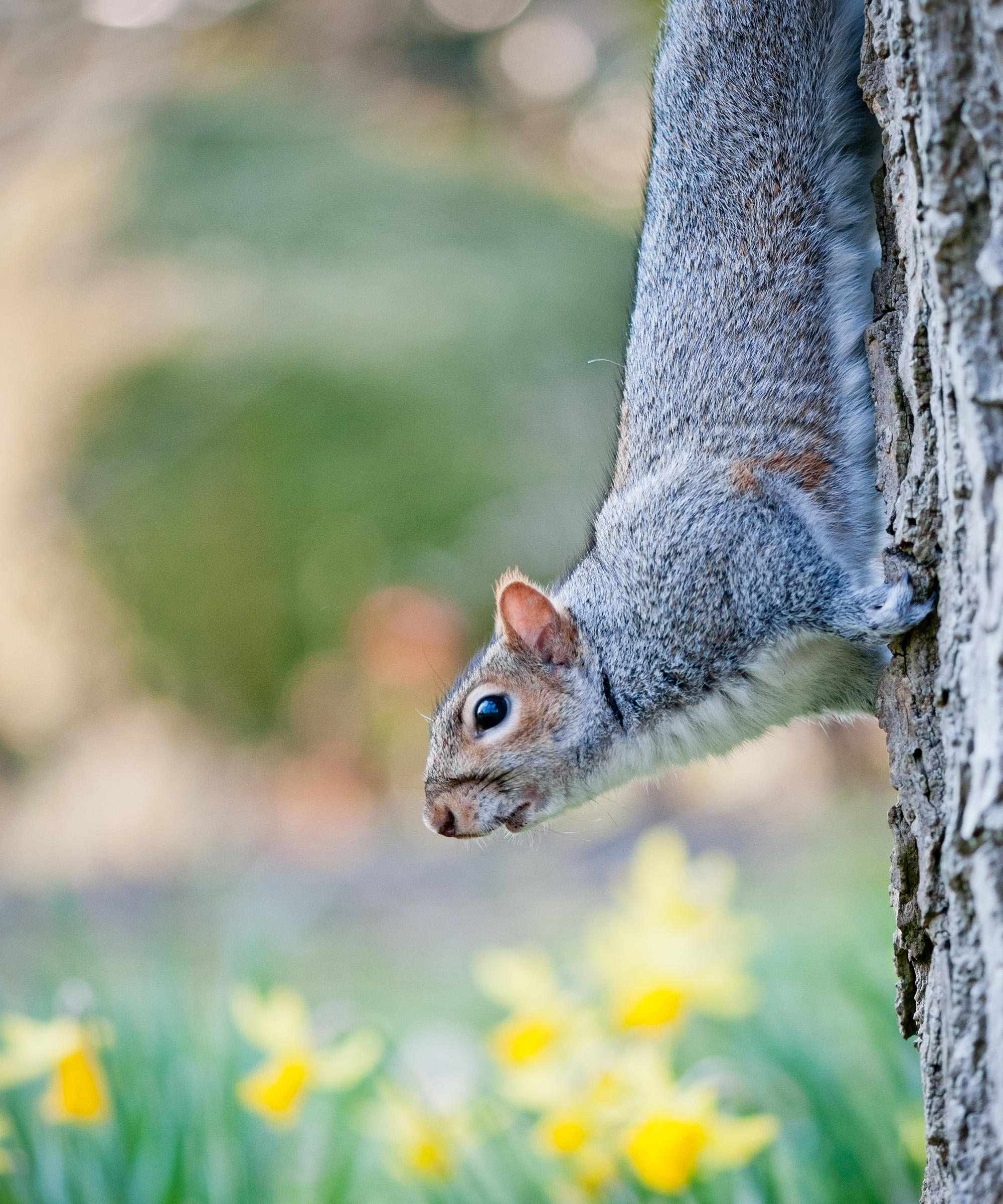
Use a bulb planter to get your bulbs too deep for the squirrels to find
Most squirrels won't dig further than a few inches beneath the soil, so if your bulbs are planted at 6-8in deep, it's more likely the squirrels won't reach them.
Using a long handled bulb planter makes the job of planting bulbs to this depth that much easier.
Garden Weasel Bulb Planter 91350 | Was $49.95, now $36.79 at Amazon
Multi-purpose tool for planting spring, summer and fall bulbs at depth, without stooping.
3. Make a barrier to cover the bulb planting area
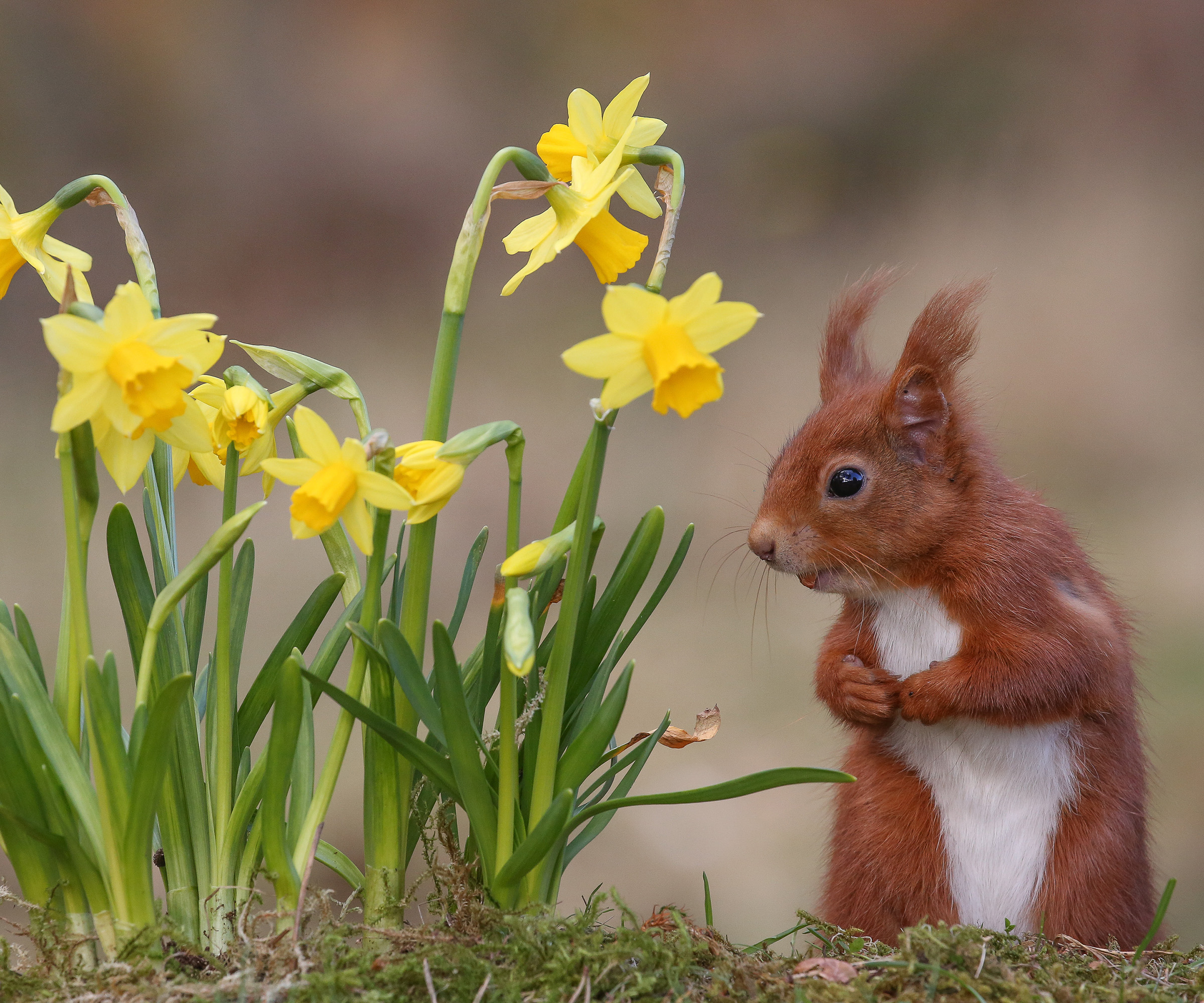
Chicken wire is a good barrier method to stop squirrels digging
Making the soil more difficult for squirrels to dig into is a favored tactic, and there are plenty of different options, whether you're planting bulbs straight in the ground or in pots as part of your spring planter ideas.
'My favorite method of keeping squirrels out of potted plants is to add a layer of gravel to the top of the soil. Not only does it keep squirrels away but it covers unsightly bare-soil,' says Teresa Conway. Try this 5 Pound Decorative Rocks for Plants at Walmart.
Many people vouch for using chicken wire or hardware cloth (a similar metal mesh but with a smaller grid pattern) to cover the planting area or the top of the pot or planter box.
Simply lay the chicken wire onto the soil's surface, cover with a thin layer of mulch and stake it down with bricks to keep in place. Your bulb stems will grow through the holes, but the bulbs themselves won't be dug up. You can even add strips of foil into your mulch, as squirrels and rodents hate the feeling of foil in their teeth.
Another more intensive method is to use a bulb planting basket like this 12 in. Devon Hanging Basket with AquaSav Coconut Liner at The Home Depot, the top of which is covered with chicken wire. You'll need to dig a hole deep and wide enough to accommodate the basket for this though.
When choosing a barrier type, just make sure the bulbs will still be able to grow through any material you lay down.
4. Use natural deterrents to make digging unpleasant for squirrels
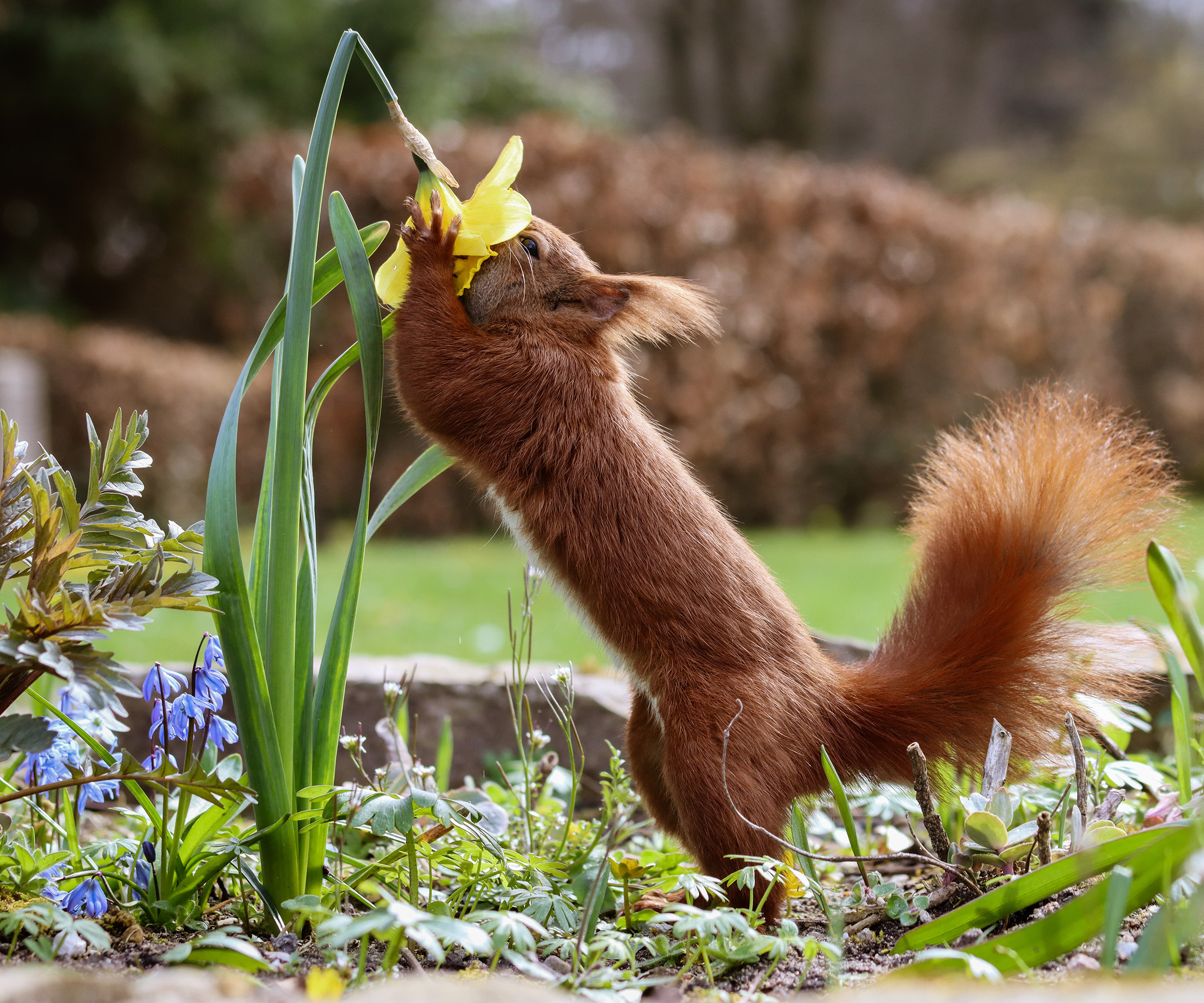
Scattering crushed up eggshells around bulb planting sites can help to deter squirrels
There are plenty of natural squirrel repellents, although some seem to work more universally than others when you're trying to stop them digging up bulbs.
Using sharp materials like crushed oyster shells, crushed stones or gravel can do wonders to stop squirrels from digging up bulbs. You can either scatter this onto the surface of the soil, or actively place it in the hole where your bulbs are planted too.
- Squirrels turn their noses up at the distinct aroma of coffee grounds, making it an obvious choice to scatter on the surface of the soil where you have planted your bulbs.
- The tangy smell of white pepper powder, garlic powder, cayenne powder and black pepper are all naturally unpleasant to a squirrel. Spice also keeps squirrels away from bird feeders. However, the potential issue here is that squirrels may rub their eyes after digging through these, which might not be pleasant for them.
- Similarly, sweet smells like peppermint essential oil will deter squirrels. You can grow mint to elicit this smell, or even soak cotton balls in peppermint oil and place them near to the bulbs planted in your yard.
- As well as being used for fertilizing plants, blood meal is sometimes suggested as a squirrel deterrent because of its high ammonia content – although some gardeners say it seems to do the opposite and attract them. Blood meal also has to stay dry to act as a deterrent.
5. Plant strategically by choosing bulbs that squirrels don't like
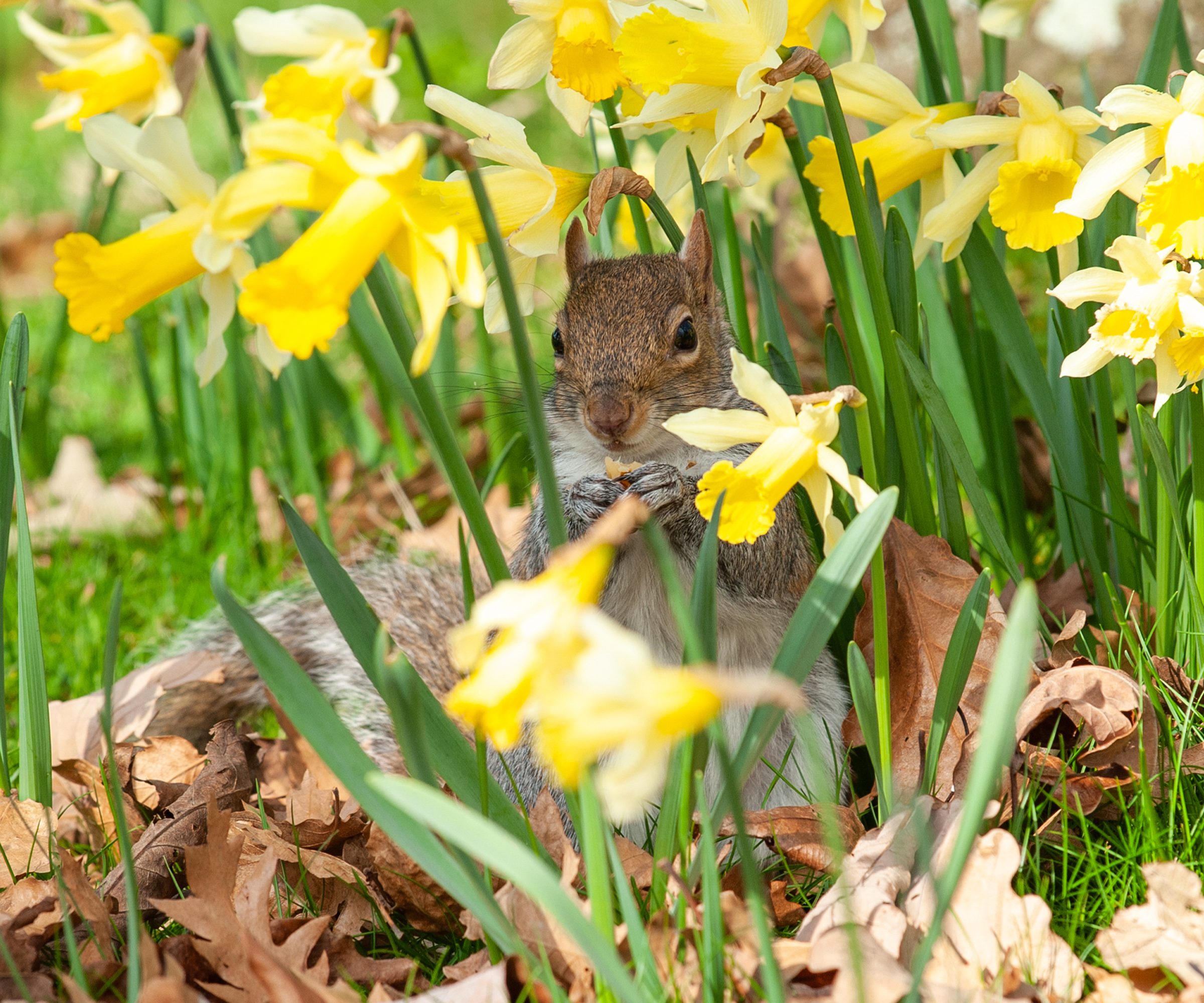
Squirrels aren't a fan of strong smelling daffodils
While you'd be forgiven for thinking squirrels eat every type of bulb, there are actually a few favorites they tend to go for: tulip bulbs are the most common, along with crocus bulbs.
In comparison, some types of plants can be repellent to squirrels, which means they should be your new faves when planning your planting.
- Daffodils have a strong smell that squirrels don't tend to like – and as hardy reliable bloomers, daffodils can easily fill an area of your yard.
- Alliums as a genus are not squirrel friendly thanks to their scent. Planting onions, leeks, scallions and garlic will all help repel squirrels around more tempting flowers and bulbs.
- Snowdrops are an unexpectedly repellent plant. Because they're mildly toxic (particularly the bulbs), squirrels and other pests tend to stay away.
- Hyacinths (H. orientalis) have a similar toxicity that stops squirrels from being interested.
As well as disliked bulbs, use companion planting to discourage squirrels from digging up your bulbs. Inter-plant your tulips and crocuses with marigolds, mint and nasturtiums to keep them at bay.
FAQs
Why do squirrels dig for bulbs in potted plants?
If your container gardening ideas are getting trashed each year, you may have noticed that it's squirrels that are to blame. But why?
Well, squirrels like to stash their food in preparation for the winter, and hiding it in the ground keeps it safe from birds. Planters full of soft compost are tempting storage solutions as they are so easy to dig in.
They also love the space that bulbs create in the soil. Once the bulb is out, it's the perfect size for storing all their scavenged nuts.
Try placing large pebbles around the top of the soil to deter them from digging – it looks attractive too.
If you're concerned about pests destroying your prize-plants then take a look at our guide on how to keep deer away from plants and how to keep squirrels away from fruit trees.
Sign up to the Homes & Gardens newsletter
Design expertise in your inbox – from inspiring decorating ideas and beautiful celebrity homes to practical gardening advice and shopping round-ups.

Freelance writer and author Flora Baker is a keen amateur gardener and houseplant enthusiast. Her small garden in South London is a constant work in progress as she gets to grips with snail prevention, DIY trellises and what to plant in shady spots overrun with ivy.
-
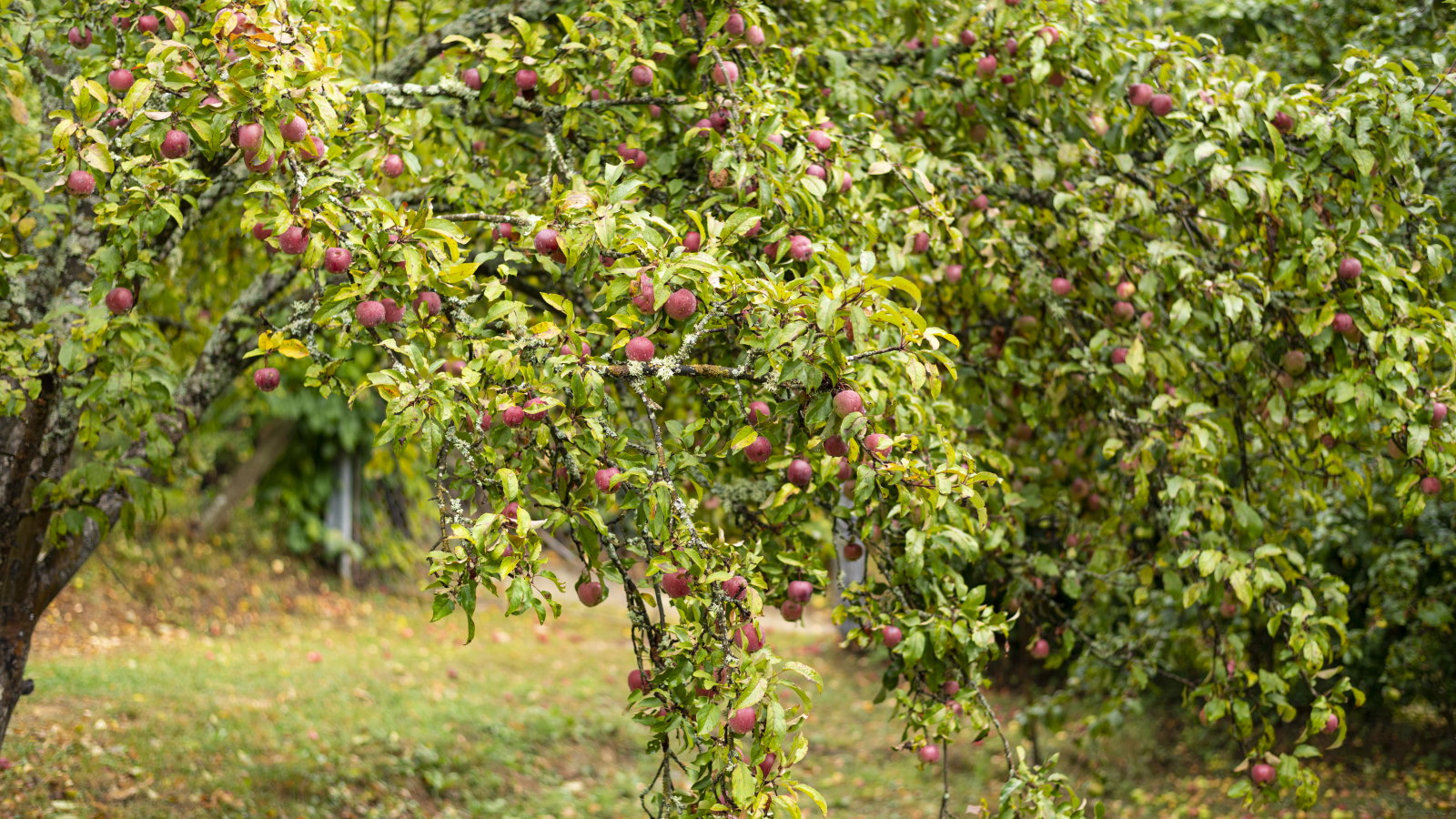 Plants never to grow next to fruit trees
Plants never to grow next to fruit treesExpert advice on which plants to keep away from fruit trees to encourage a healthy harvest
By Jacky Parker Published
-
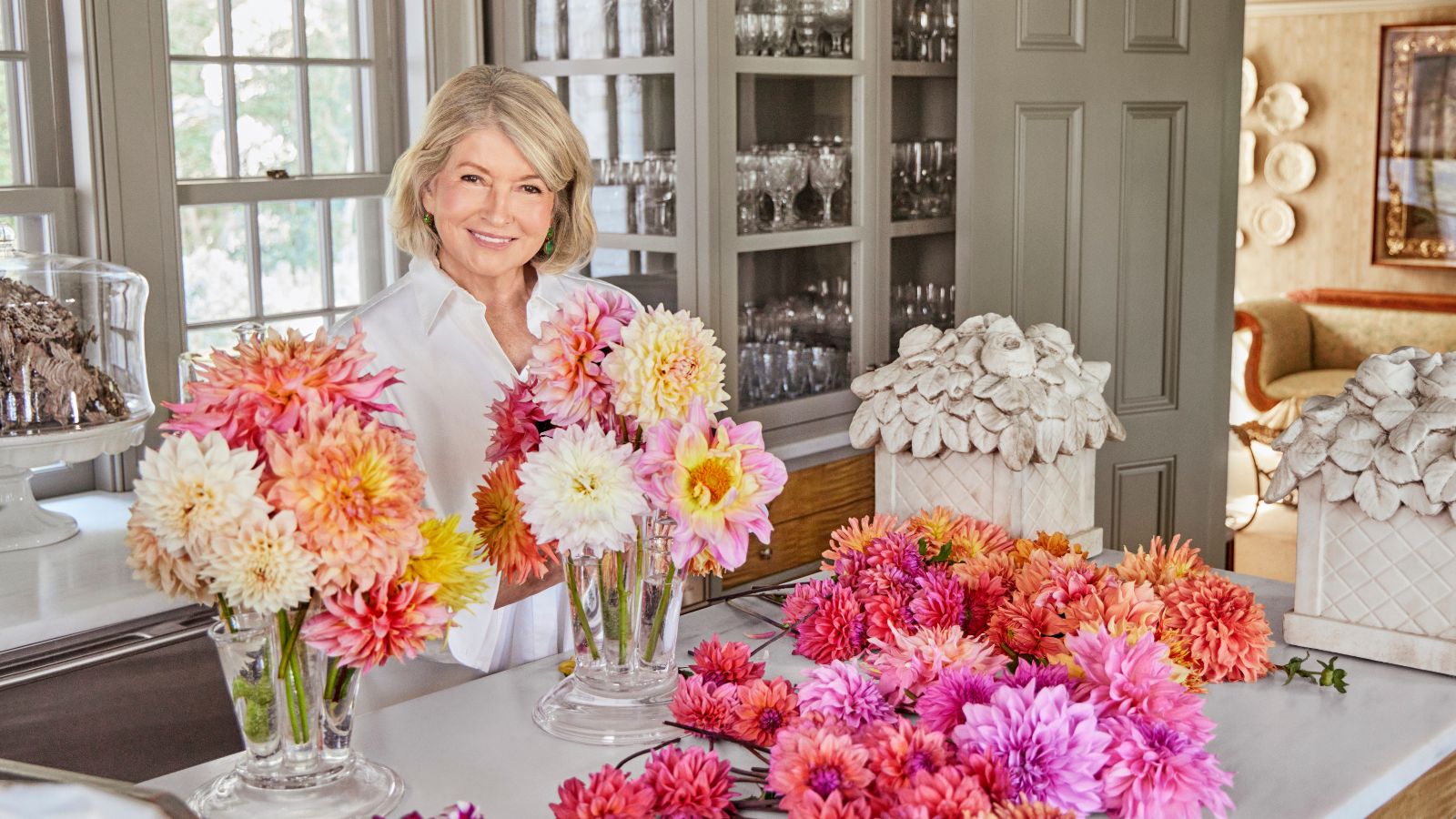 Martha Stewart's tips for arranging daffodils are unbelievably simple and effective – it's the only flower advice you need this springtime
Martha Stewart's tips for arranging daffodils are unbelievably simple and effective – it's the only flower advice you need this springtimeMartha shows us that we can create gorgeous bouquets of this seasonal flower by simply trimming the stems and placing them in specific vases
By Hannah Ziegler Published
